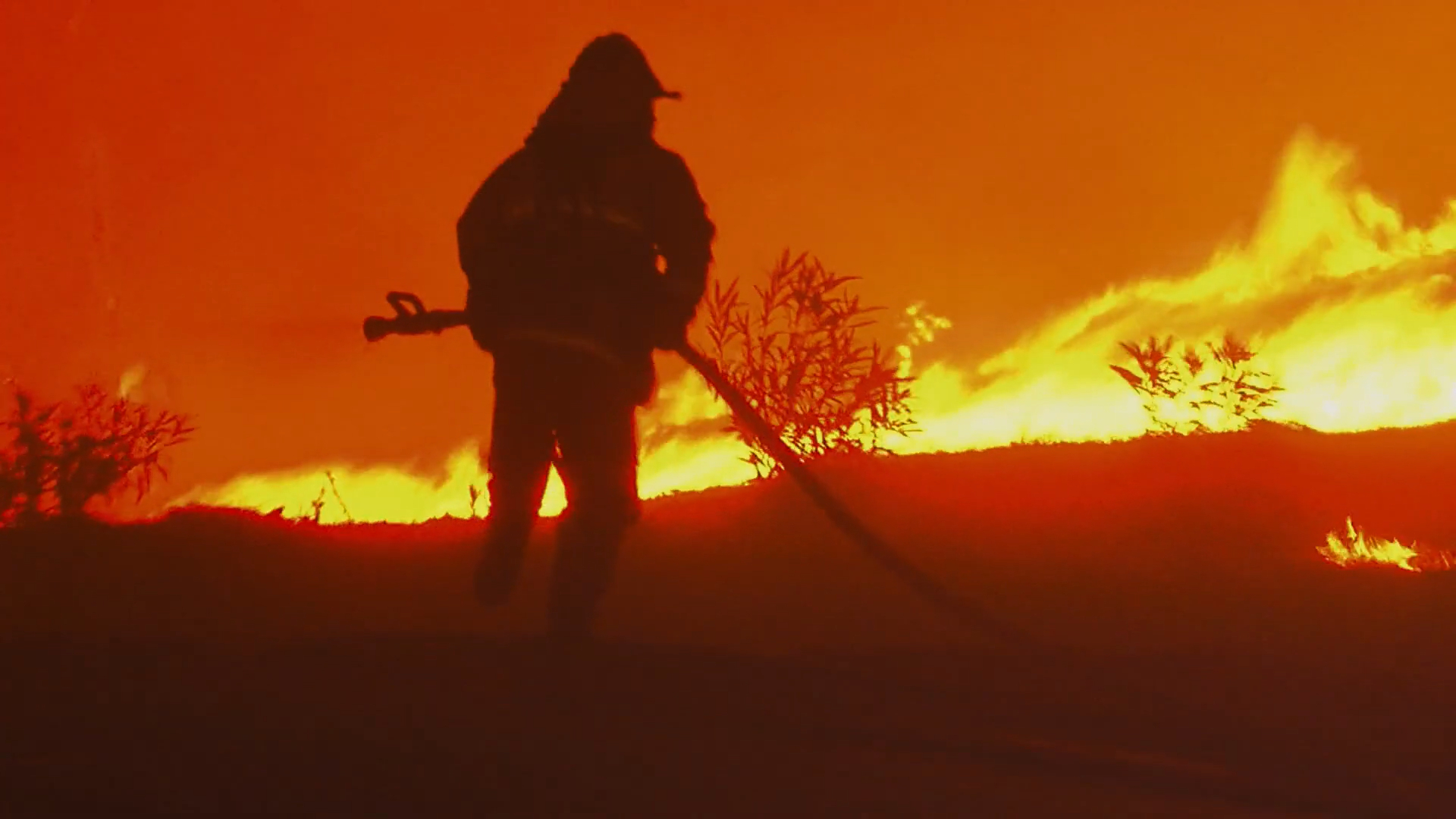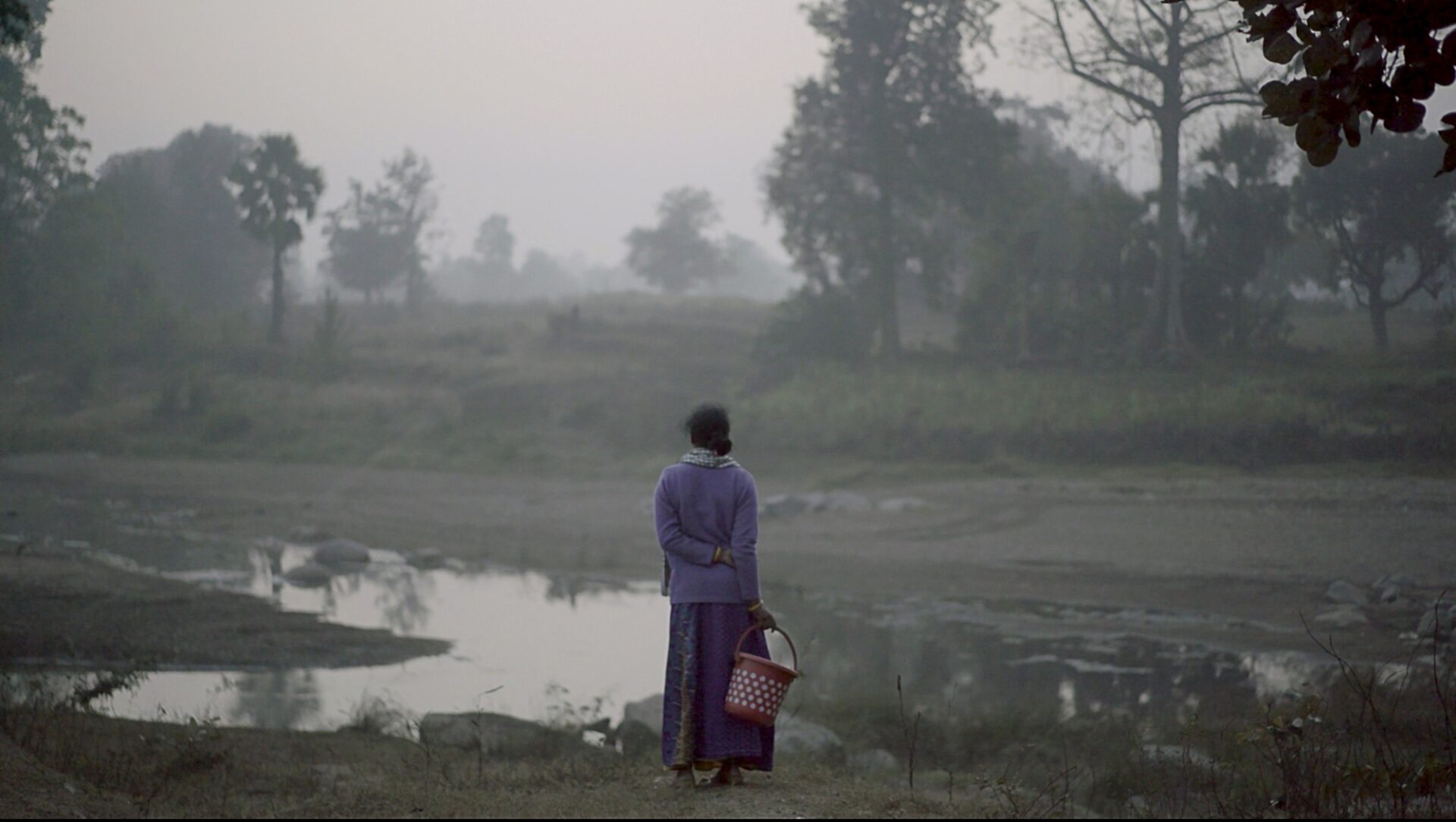Rebuilding Paradise
(dir. Ron Howard, Documentary Premieres)
The opening shots of fire that begin Ron Howard’s Rebuilding Paradise are almost as harrowing as the beach landing in Saving Private Ryan. A flurry of shots depicts trees burning and forests being decimated. Images of quick escapes and shakycam footage bring you to the heart of the California fire in amazingly visceral ways. Before the embers of the Camp fire) cooled, the documentary crew was on the ground in Paradise, California to both document the devastation and showcase the real challenges and tragedies experienced by a community that was almost completely wiped off the map.
Following a number of compelling stories from residents, which range from tales of struggling families to first responders, the film benefits greatly from Howard’s extensive moviemaking experience, which includes directing Backdraft. With a soundtrack mixed at Skywalker Sound and a score by Hans Zimmer, the film has the gloss of a Hollywood production. Yet the film never lets the style overwhelm the stories of the people it showcases, providing real insights into the struggles of those coming to terms with an event of this magnitude. Arguments can be made that the film would have benefitted from finding stories from a wider range of individuals, particularly given the almost ten percent of the former population that are of Hispanic or Latino descent. Yet the stories they do follow are so beautifully rendered that it’s easy to see why the filmmakers chose these individuals to follow for the year.
This environmental documentary starts as a true-life action movie and then swings into a poignant portrayal of a group of people living with the aftermath of the disaster. Its specificity is its strength yet given the increased prevalence of disasters affecting people throughout the world, its message is equally universal. Told with exceptional craft and warm sympathy for the participants, Rebuilding Paradise burns brightly.
The Dissident
(dir. Bryan Fogel, Documentary Premieres)
In 2017, Bryan Fogel set out to make a kind of Super-Size Me about performance enhancing drugs only to accidentally uncover a global corruption scandal. The resulting film, Icarus, went on to win an Oscar. The Dissident, his much-anticipated follow-up, seems to answer the question about what would have happened if the previous film’s original scope was followed, without the major shift that made it so relevant and exciting. For as important as the focus of this film is—uncovering the details of the murder of Washington Post journalist Jamal Ahmad Khashoggi in the Saudi embassy in Turkey—the result is a frustratingly straightforward work that does little justice to the impact of its tragic story.
With slick graphics that evoke a spy movie, the film provides a decent summary of the events in the case. The new revelations that are presented as if they were of great importance involve a Montreal-based activist whose phone had been hacked, with messages that may have helped convince the Saudi regime to finally silence Khashoggi. Beyond hypothetical connections to the killing, the film struggles to capture the myriad aspects of Khashoggi’s life and career. The doc barely touches upon his shifting positions over decades as an insider and the causes for his leaving for the West and taking up positions often at odds with the Saudi Government’s desired messaging.
The result is a film that feels ambitious but under-baked, lacking the required rigour to truly shed light on the contradictions of Khashoggi’s life, the forces that continue to shape modern Saudi policy, and the global political fallout of his murder. This is a story that needs to be told. While The Dissident is unable to do justice to the complexity of the story, if it opens viewers’ eyes to the horror of what transpired in the embassy in Turkey, then its mission has been accomplished.
Lance
(dir. Marina Zenovich, Special Presentations)
In the opening few minutes of Zenovich’s remarkable film, we hear disgraced bicyclist Lance Armstrong admit that he had been waiting years for someone to say “fuck you” to his face. Following this are quick clips of two sports journalists who admonish the director to not have the film simply fuel Armstrong’s own predilection for lies and explicit desire for reclamation of his image. Over the next 200 plus minutes, we’re treated to a brilliantly conceived, nuanced and open-eyed portrayal of this most mercurial of celebrities, resulting in a 30 for 30 documentary that more than lives up to the sterling reputation of the ESPN series.
This film is almost an antidote to Alex Gibney’s superficial and frustrating take back in 2013 on the same subject. Here Zenovich provides genuine journalistic rigour to uncover whatever truths can be brought to light, with interviewees consistently aware of the decades of lies that surround the sport of cycling and Armstrong’s own mythmaking. There remain many contradictions, but Armstrong seems as open as possible to acknowledging his frailties. Many other participants, especially those drawn from the cycling world, surface to provide deeper context for cycling’s scandalous approach towards drugs and are now unafraid of any repercussions. That isn’t to say this is some masochistic exercise in self-flagellation on the part of Armstrong in order to gain back fans. There’s a real sense of the full dimension of this disgraced athlete, highlighting both the remarkable and despicable aspects of his character. It’s impossible to see what’s next for Armstrong, but the film does the best job to date in not only celebrating what made him an international sensation in the first place, illuminating the community that shaped the actions he was eventually excoriated for, while asking the complex moral questions about cheating in a sport where such behaviour is endemic.
Lance is a film that goes out of its way to paint as complete a picture of this complicated subject as possible. It’s a hell of a ride.
The Go-Go’s
(dir. Alison Ellwood, Documentary Premieres)
Part celebration, part campaign ad for induction in the Rock and Roll Hall of Fame, Alison Ellwood’s sympathetic and straightforward look at one of the definitive ’80s bands is sure to sate fans of the Go-Go’s. The film traces the clichéd rise and fall of the pop group, from their punk-rock beginnings on L.A.’s Sunset Strip through to their meteoric rise with a number one debut album, followed by a brilliant period of success, and an all-too-soon disintegration after two more records. Interviews with core band members as well as those that were shunted aside, provide context and some good war stories, while vintage clips, behind-the-scenes shots, rare concert footage and massively successful music videos help provide a musical scaffolding on which the story unfolds.
Decades on from their prime, past members are free to discuss some of their more sordid tales, from rampant alcohol and narcotics abuse through to acts of betrayal, hubris and greed. For a band that is celebrated as being the first all-girl group to hit #1 by playing their own instruments and writing their own songs, it’s clear that their travails of sex, drugs and rock and roll are just as debauched and colourful as any of their often male contemporaries.
Still, there are only so many ways to tell the same rock doc story, making the film feel both slight and repetitive. Ellwood isn’t able to generate as much interest as one would hope, in how the band handled their highlights and demise in the eccentric southern California scene. (It was clearly a conscious decision to devote little time to lead singer Belinda Carlisle’s success after the breakup of the band.)
Tied to contemporary reunion gigs, it’s easy to fault the film as little more than an exercise in self-promotion. Yet thanks to the infectious music, mature reflections on the past and the inclusion of former members whose stories have often been written out when telling the history of the band, it’s fair to say that this is a fine if uninspired celebration of one of the great acts of the era, the ground-breaking Go-Go’s.












